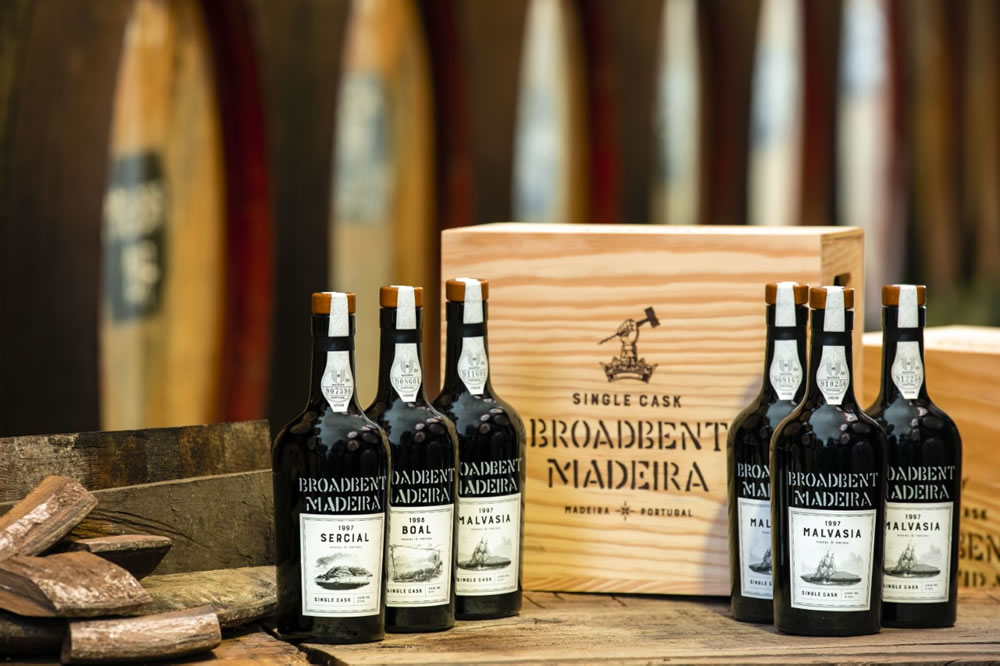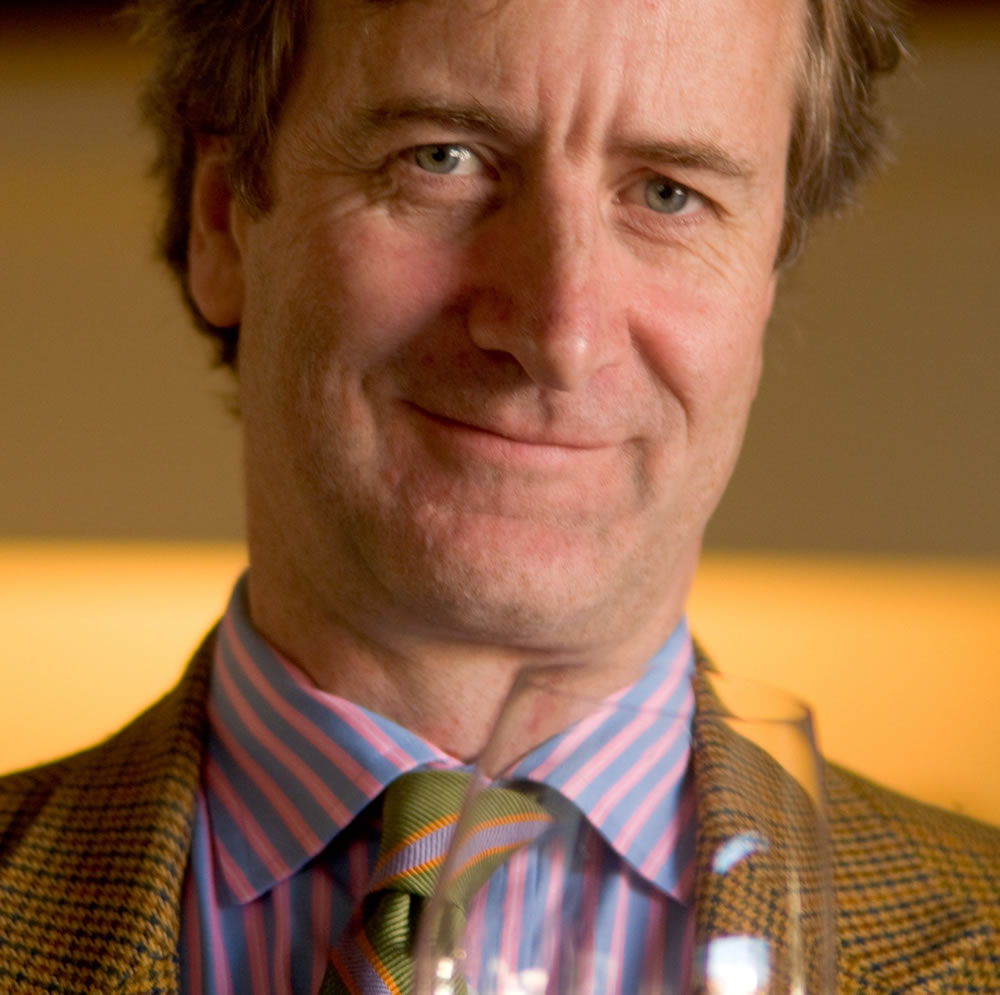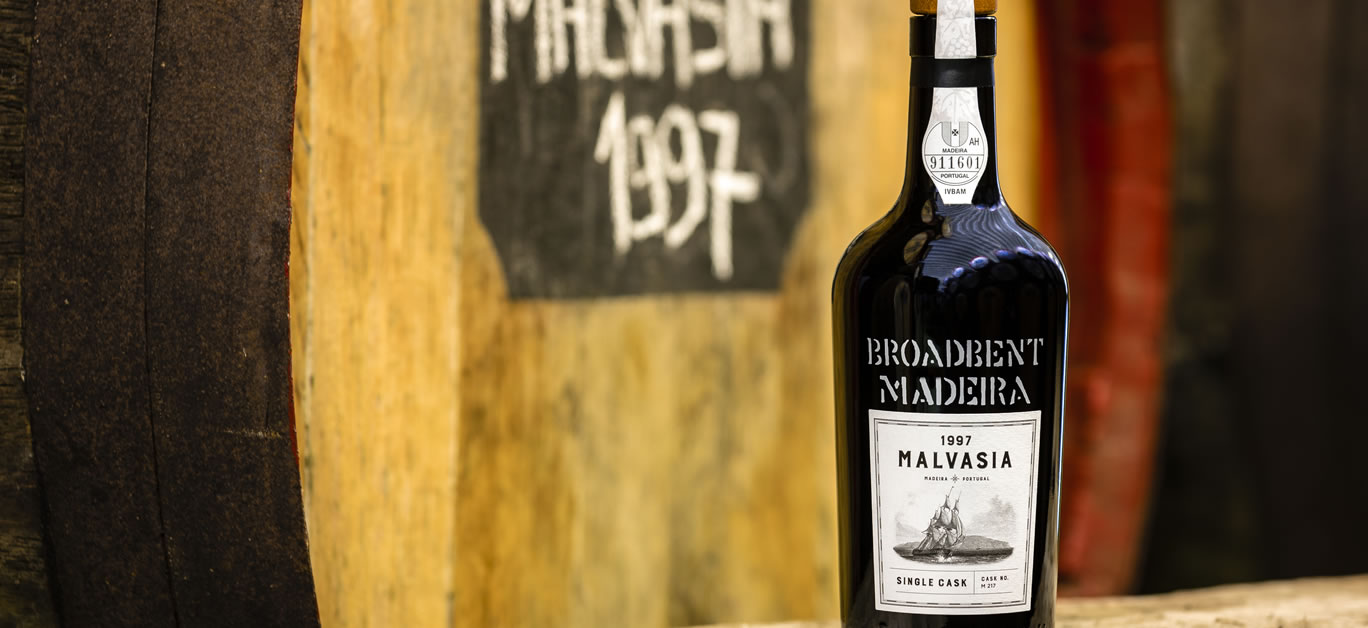“I was brought up drinking the world’s greatest wines. I started when I was seven. But my parents told me that too much wine would stunt my growth. I’m now 5’11½”.
Somerset-born Bartholomew Broadbent pioneered the reintroduction of port and Madeira in the US, he produces his own Madeira and is the first producer to sell Single Cask Madeira.
“Basically, they are the very best of hundreds of barrels of Madeira which we have identified as worthy of bottling alone,” says the former pupil of Dorset’s Milton Abbey School.
“The best rainwater in the world is found in the Atlantic, four hundred miles off the west coast of Africa. Rainwater Medium Dry Madeira may be considered excellent entry-level Madeiran wine but it is an excellent fortified wine in its own right. Madeira virtually disappeared from the US after Prohibition.”
“Nobody really knows why Rainwater came about,” adds the now Virginia-based Englishman. “One theory is that a gentleman in Savannah, Georgia tasted some and claimed ‘this is as fine as rainwater’. Pre-industrial acid rain, of course.
“The second theory is that some barrels sent to the US for the merchant William Neyle Habersham, was left on the dockside, also in Savannah. They got left outside and got diluted by a tropical storm.”

Today, Rainwater is still a lighter style of Madeira. By law it must be light in colour too. The wine is usually bottled at around three years of age but some producers, like Justino’s, have bottled 10 year old Rainwaters. They are made mostly from Negra Mole grapes but could also have Triumfo or Complexa.
He launched his own Broadbent Madeira in 1996, sending his parents to the island to come up with blends and to buy wines from vintages as old as 1933. He tells me: “Selling Madeira is easy. People like it. It has a very refreshing acidity and flavours which are more or less universally liked. It is also very versatile, with ranges from dry to sweet and it’s convenient that, once opened, a bottle does not go off. It can be kept open for years. It’s also the ultimate dessert wine. Most late harvest wines and Sauternes are sweet and have a long sweet finish.”
Madeira also has very strong ties with the US. George Washington drank a pint a day, Betsy Ross had a side table with Madeira on it when she was sewing the flag, and the Constitution and Declaration of Independence were officially toasted with Madeira. The wine was even invented through shipping it to America when it was discovered to have improved from being in barrel in the holds of the ships where they got heated and we still simulate the voyage by heating Madeira as part of the production process.
It was even America’s first tax loophole when the King of England declared that all goods being shipped to America had to be taxed, but forgot to include Madeira. Being part of Portugal, Madeira was the first country to recognise the independence of America.
Broadbent explains: “It was the biggest selling wine in America until Prohibition. All that makes it a very easy wine to sell now.”
Rainwater Madeira wine is aged in ‘estufas’ rooms and its secret is that a small amount of distilled alcohol made from cane sugar is added to stabilize the wine.

Traditionally there were four primary high acid grapes from which Madeiras were made. In progressive order of sweetness, from very dry to sweet, those were Sercial (from the north), Verdelho, Bual (found mainly in the south) and early harvested Malvasia (also known as ‘Malmsey’ and also grown in the south). As Madeiran wines were originally ‘made’ on board ships on long voyages so they wouldn’t spoil, they were known as wines ‘vinho da roda’ (wines that have made the round trip).
Son of the celebrated wine critic, sales director of the wine department at Christie’s, the late Michael Broadbent, as well as his father’s favourite ’desert island wine’, Bartholomew also champion wines from his adopted US state of Virginia.
He says: “In 2002, my father’s new book, Vintage Wine, was published and I arranged the book tour. Luca Paschina, the winemaker at Barboursville Vineyards in Virginia, heard that we had a book signing in Charlottesville and invited us to a dinner at Palladio, the winery’s restaurant. It was on condition that he could pour some of his wines alongside some of mine. It turned out that Barboursville was superior to any of the wines that I had brought. It opened our eyes!”
Bartholomew worked in London for Harrod’s wine department, Harvey’s Fine Wine Merchants in Pall Mall and Christie’s. He worked in Australia for Rothbury Estate and Yalumba Winery. In France, he worked in Cognac for Hennessy and in Paris for L’Academie du Vin. He moved to Montreal to work for Schenley Canada Inc, later to Toronto as their wine consultant.
In the United States, he set up Premium Port Wines, Inc. for the Symington family, which he ran for 10 years, before leaving to create Broadbent Selections, Inc in 1996, he lectures on wine aboard cruise ships and has been a judge at most of the prestigious wine awards. The named Broadbent has always been synonymous with fine wines.

Broadbent eludes: “When I set up business I wanted to represent wines that were the best quality in their price points whether $5 or $400. My South African ‘The Curator’ I consider one of the best in the US for $7. Subsequently, in the past three years, some great Italian and French producers became available or switched to us because we’ve established a strong reputation, and we’ve added a dozen wineries to our portfolio. We’ve stuck to our guns in only representing family businesses of only high quality.
“Musar is the most natural wine in the world with nothing added to it, the way it was made thousands of years ago. I discovered it in 1979 with my father at the Bristol Wine Fair. It was the only red wine at my wedding. It makes a white wine made of Obaideh and Merwah (two indigenous varieties with no DNA connections to any other vines in the world) that is completely unique with some of these vines 150 years old. The two most exciting places for wine today are South Africa and Portugal. Our Broadbent Vinho Verde is the third largest-selling Portuguese wine in America.”
After living in San Francisco for 21 years, Bartholomew moved to Richmond, Virginia. Previously Virginian wine was not sold out of state. He says: “Barboursville became the first American wine that we represented. What struck me about its wines were that they were much more European in style than American. When I moved, it was at the height of Napa’s trend towards over-extraction, over-concentration and over-ripeness, resulting in high alcohol levels in wine.”
In 2006 he launched Dragon’s Hollow wine in China. “I enjoy giving lectures and doing talks on wine on cruises. If I hadn’t been brought up around so much great wine, I would have like to have been an actor. Francis Ford Coppola, a winegrower himself, told me that I have the perfect name for an actor,” Broadbent tells me.
All imagery supplied by Broadbent Selections





















